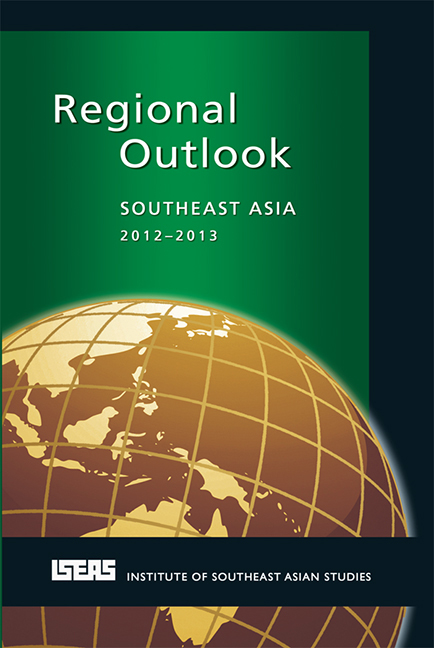Southeast Asia's Security and Political Outlook
from POLITICAL OUTLOOK
Published online by Cambridge University Press: 21 October 2015
Summary
If the year 2011 should have taught the world anything about politics, it is this: ordinary people possess a remarkable capacity to rise up against their governments in sudden and surprising ways. Explosive uprisings across the Middle East have transformed the tenor of global politics, and put governments throughout the developing world on high alert. Southeast Asia is by no means immune from such global shock waves. But besides the general point that “the street” can go from silent to violent in practically no time flat, what specific lessons do last year's revolutions hold for Southeast Asia? As we look ahead, what if any shock waves might Southeast Asia experience in the wake of the “Arab Spring”? What might urban protest and response in the region look like? And what factors are most likely to spark them in some Southeast Asian countries rather than others?
Southeast Asian Shockwaves: Tracking the Abuse-Activism Connection
The main argument advanced in this essay is that there is a surprisingly straightforward common thread linking urban uprisings throughout the developing world — not just in recent months, but in recent decades. Contrary to conventional (especially journalistic) wisdom, this common thread is not poverty or economic hardship, or the failed economic policies of governments in power. Instead, the spark that almost uniformly underlies the urban eruptions that we have by now become accustomed to witnessing throughout the world — including in many of Southeast Asia's bustling capital cities — is not economic but political.
Most simply put, this common spark is government abuse. Ordinary people will frequently endure poverty in quiet isolation for decades on end. But when a government betrays its citizenry by committing a grave, vivid, and shocking abuse of power, the potential exists for a massive political explosion. This revolutionary potential is amplified when the citizenry can pinpoint an especially objectionable head of state as the source of that abuse.
- Type
- Chapter
- Information
- Regional OutlookSoutheast Asia 2012–2013, pp. 3 - 44Publisher: ISEAS–Yusof Ishak InstitutePrint publication year: 2012

